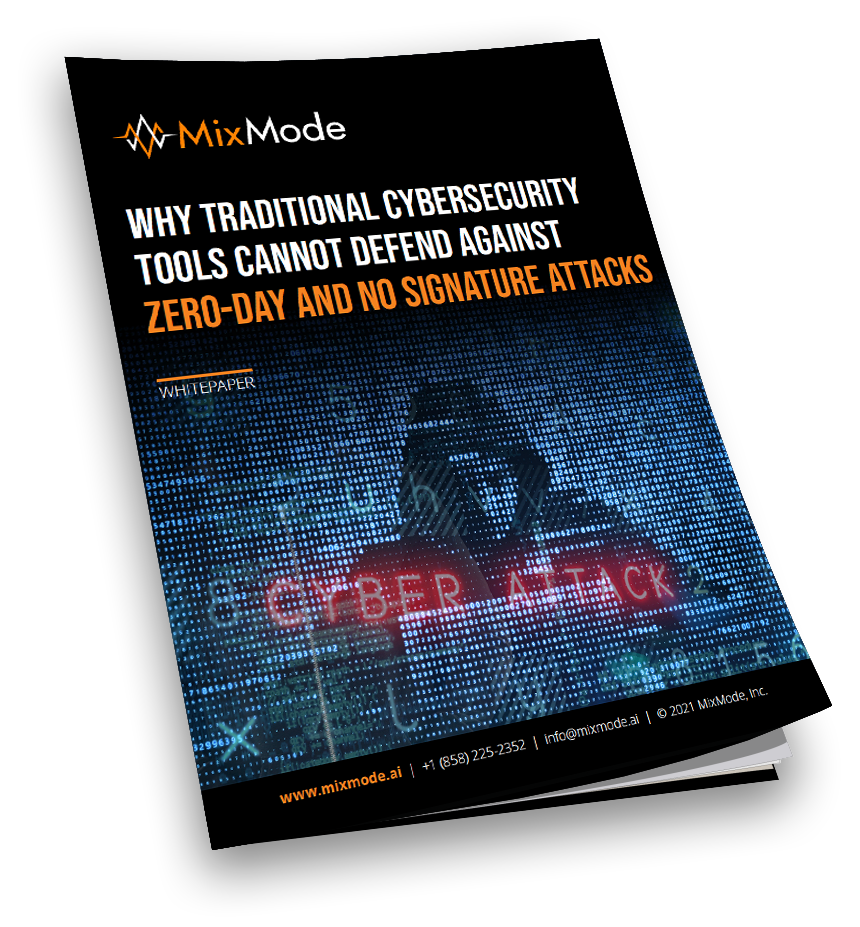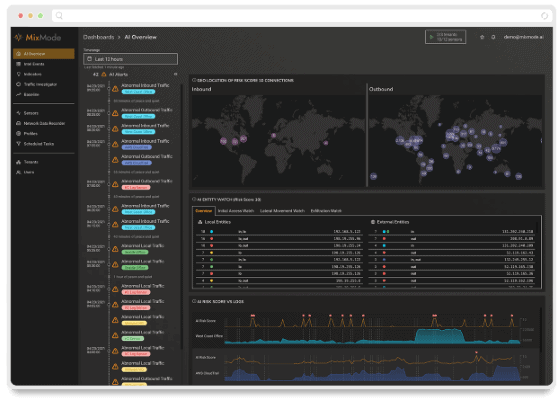MixMode Whitepaper
Why Traditional Cybersecurity Tools Cannot Defend Against Zero-Day and No Signature Attacks

Can your cybersecurity solution really combat zero-day attacks? The answer is most likely “no,” despite vendor claims. Buyer beware, indeed. Vendors in today’s marketplace tend to over promise on fundamental cybersecurity features when in fact, most lack the AI capabilities to detect these attacks or to monitor systems in real-time.
This whitepaper will dive into how traditional cybersecurity tools work, why this fundamentally limits them from being able to detect zero-day or previously unknown attacks, why the industry standard for breach detection is around six to eight months and how modern, contextually-aware AI overcomes the limitations of traditional cybersecurity solutions.
Download the Whitepaper


Whitepaper: Why Traditional Cybersecurity Tools Cannot Defend Against Zero-Day and No Signature Attacks



Can your cybersecurity solution really combat zero-day attacks? The answer is most likely “no,” despite vendor claims. Buyer beware, indeed. Vendors in today’s marketplace tend to over promise on fundamental cybersecurity features when in fact, most lack the AI capabilities to detect these attacks or to monitor systems in real-time.
This whitepaper will dive into how traditional cybersecurity tools work, why this fundamentally limits them from being able to detect zero-day or previously unknown attacks, why the industry standard for breach detection is around six to eight months and how modern, contextually-aware AI overcomes the limitations of traditional cybersecurity solutions.

